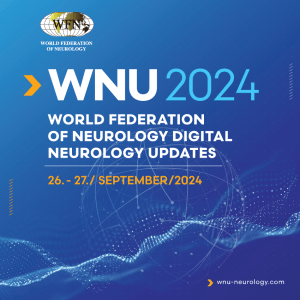
With over 100 delegates, the conference attracted a global audience of experts and practitioners, sharing insights and updates on relevant clinical, medico-legal and research issues relating to Huntington’s disease (HD).
Following the Trust welcome, the conference delegates heard from two family members who spoke powerfully and insightfully on the experience of living with HD. Alice Rivières, French writer, gave an inspiring talk entitled “Becoming extra-ordinary, a journey through Huntingtonland”. Ms Rivières proposed that “if Huntington’s disease is a world waiting to be discovered, she – Huntington’s – is indeed female”, as in the French language, the words “land” and “disease” are feminine – and needs her own language, her own mythology and her own founding texts. In order to help her in her exciting mission, Ms Rivières created Dingdingdong, an institute for the coproduction of knowledge about HD, comprising a team of artists and researchers from social sciences. Ms Rivières articulately set the theme of the conference in exploring the new Huntington’s planet.
Dina D’Sousa, who is a member of the European Huntington Association, and Asun Martinez, President of the International Huntington Association, were able to highlight how two international bodies can have one common goal. Their talk addressed how support groups and voluntary organisations have an instrumental role in supporting families and facilitating advanced research. Their noble effort to work with HD sufferers and carers, as well as supporting ongoing research, is certainly quite inspiring to those working with other similar disorders.
Dr George El-Nimr, Consultant Neuropsychiatrist and event organiser, gave a talk on how our patients actually perceive the world. It is not uncommon for our patients to be judged by others in a negative light. Clinicians working with people with HD are often troubled, having to fight on behalf of their patients to explain to the outside world how the condition can colour the behaviour and personality. Unfortunately, characteristics such as stubbornness, self-centredness and laziness are attributed to individuals rather than to the behaviour of the illness. Understanding how our patients do actually experience their inner world and see the world around them can help us considerably in understanding why they behave in a certain way. For example, our patients’ difficulties in reading certain facial emotional expressions, controlling their own impulses, multi-tasking or working out possible consequences of behaviours and events can explain a number of behaviours that are viewed unfavourably by others. Similarly, problems with social cognition and impaired Theory of Mind can also explain various aspects of the behaviours and assist in formulating a management plan for such difficulties. The talk also addressed why some of our patients may appear extremely reluctant to engage in certain activities, especially new ones, and how caregivers can benefit from understanding the background of such difficulties.
Dr David Crauford, Senior Lecturer from the University of Manchester, discussed challenging behaviour associated with HD and how this can be adequately managed. Dr Crauford highlighted how, historically, clinicians and researchers have tended to focus mainly on the motor aspects of HD, but the cognitive and behavioural changes often have a much greater impact on quality of life for patients and carers. Mood changes, irritability, perseveration (repetitive thinking / behaviour) and loss of motivation (apathy) are the most common and troublesome behavioural changes, and are seen in other neuropsychiatric disorders as well as HD. Anxiety and irritability can in turn lead to impulsive aggression, while perseveration can also result in difficult and challenging behaviours. Anosognosia (lack of awareness of symptoms or deficits) is common in patients with HD and is presumed to be a consequence of the cognitive changes affecting frontal lobe/ executive function, but often causes further difficulties for diagnosis and management. Many of these behavioural manifestations of HD respond well to symptomatic treatment, and this talk focused on strategies for managing challenging behaviour in HD.
The conference delegates were privileged to hear from Professor Josef Priller from Germany, who spoke about current thinking in relation to symptomatic treatment. The presentation outlined recent advances in the treatment of HD, with a particular focus on neuropsychiatric symptoms of HD. He also provided examples of the translation of basic science results into HD clinical trials.
The conference also hosted a number of interactive workshops that were well received and enhanced the educational value of the event. The workshop, entitled “Young people on board”, was organised by the Huntington’s Disease Youth Organisation. Ms Catherine Martin explored the difference open communication can make. The workshop looked specifically at the impact and changes in young people.
Bill Crowder of the Huntington’s Disease Association delivered a thought-provoking workshop on end of life issues. Mr Crowder explored some of the care challenges, including planning for the future, symptom management and spiritual needs, and discussed issues that go beyond the hands-on care which is equally important for the individual and family alike. How the Huntington’s Disease Association can help people living with HD and support them and professionals in providing the most appropriate care and support was also discussed.
A rather popular workshop on “How far have we come?” constituted an important part of the day. Dr Akshay Nair, a psychiatrist and Clinical Training Fellow, along with Lauren Byrne, a research assistant, offered a research update on the topic. Workshop facilitators highlighted the fact that a wide range of research is ongoing, including clinical trials, the development of novel biomarkers and using cognitive neuroscience to better understand the symptoms of HD. The workshop provided an overview of some of the recent research highlights, concentrating on ongoing clinical trials, brain imaging research and new blood tests for HD. Some exciting upcoming research studies were also discussed.
Conference attendees were also interested to hear from Gemma Eason of Irwin Mitchell Solicitors, who spoke about the legal framework and managing the affairs of someone with HD within this. She highlighted that this is an area where the correct approach really depends on the level of capacity of the individual concerned. Lasting Powers of Attorney, Deputyships and Trusts were covered. Ms Eason was also able to provide guidance on the best approach to address such issues and how to access legal advice.
Daniela Rae, Research Fellow of the University of Aberdeen, gave a stimulating talk on “Optimising the standards of care”. Ms Rae emphasised that health and social care delivery faces signi cant challenges, particularly in complex, chronic and multi-morbidity conditions. There are increasing health / social care demands and financial pressures on funding and resources. There is a drive towards delivering patient-centred care closer to home.
Professor Hugh Rickards of Birmingham University then addressed the issues of research and clinical care in HD and whether they are friends or foes. Quite articulately, Professor Rickards pointed out that what people with illnesses of all kinds really want to know can be boiled down to two essential questions: “What’s going to happen in the future?” and “What can anyone do to change that?”. Research has actually led to the discovery of a gene which has made the diagnosis much more sensitive and specific. Professor Rickards also highlighted the potential dangers that come with research. One must make sure that research facilities do not feel like “research fodder” for those participants and there is also the danger that we think more about rating scales than about people. Just because something is measurable doesn’t mean it’s important. Research can take up clinical time that might have been better spent. Finally, research communities can sometimes hang on to cherished ideas long after their sell-by dates and we need to guard against that. As long as we take care, research and clinical care can and should be great, mutually respectful friends, Professor Rickards emphasised.
The conference concluded with a panel discussion entitled “Ask the expert; challenging symptoms and legal dilemmas”. This interactive session addressed difficult questions that patients, clinicians and researchers may face in the current climate.
The event attracted excellent feedback and demonstrated the great appetite for similar educational events that will satisfy the educational needs of clinicians and researchers, as well as keeping patients and families well informed.

